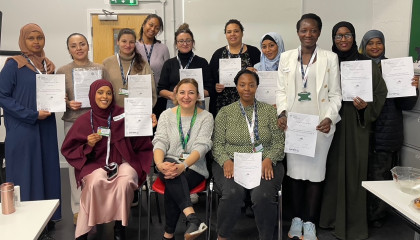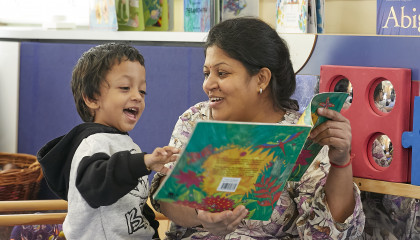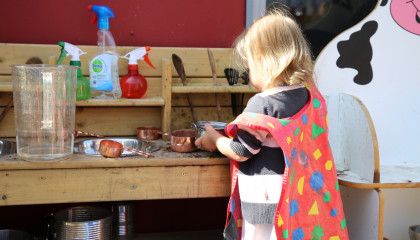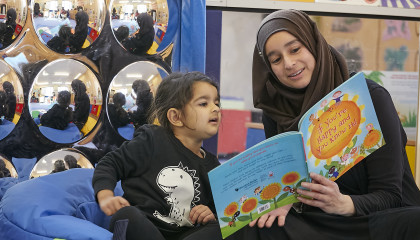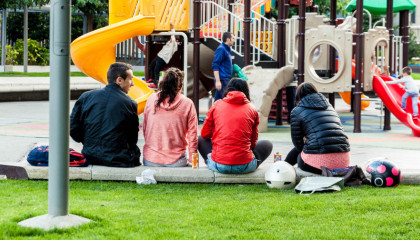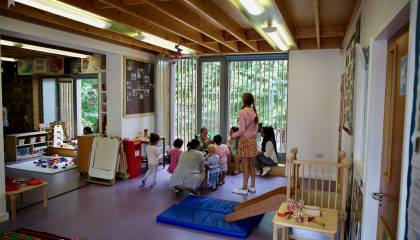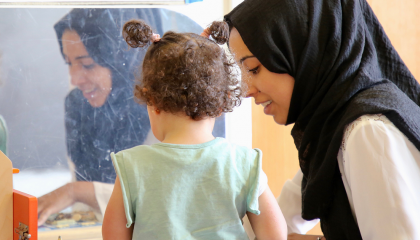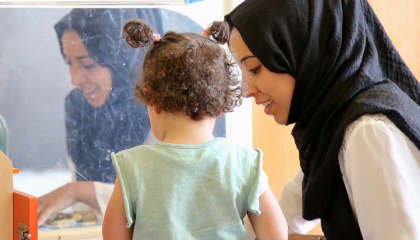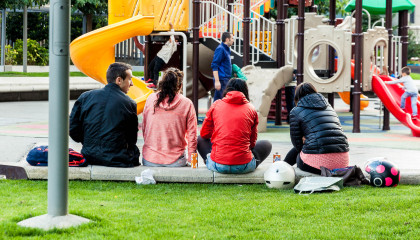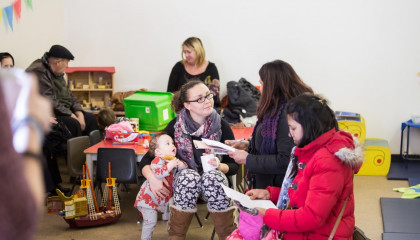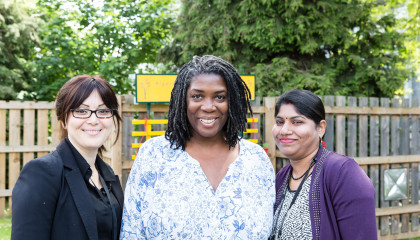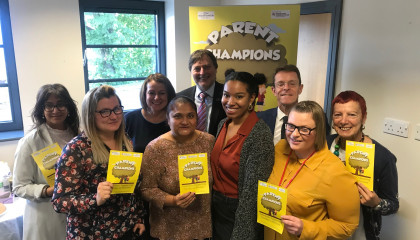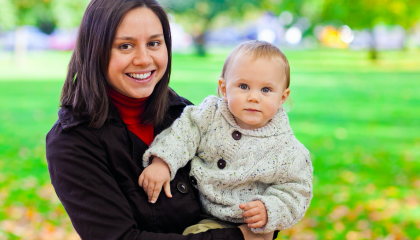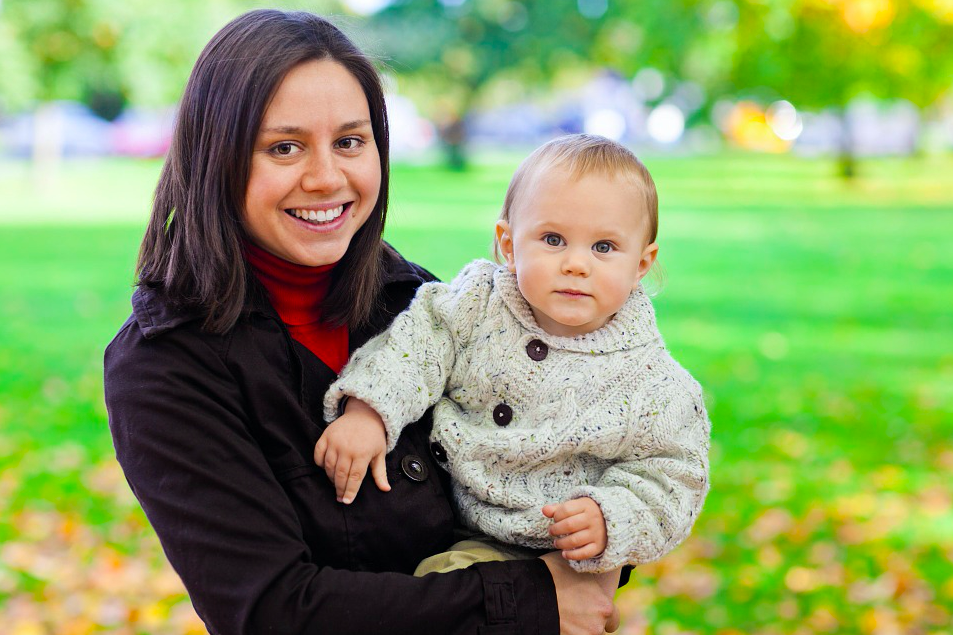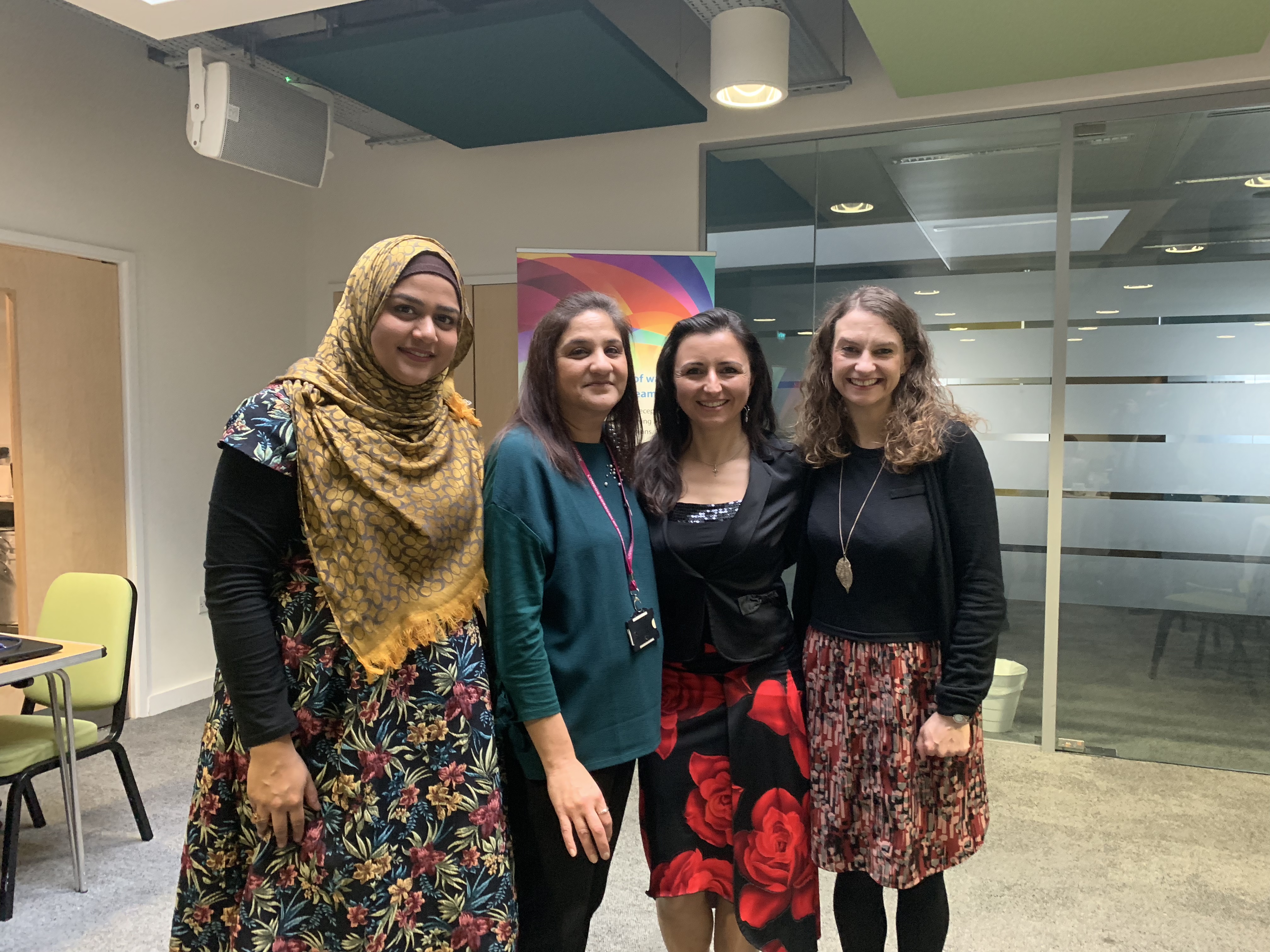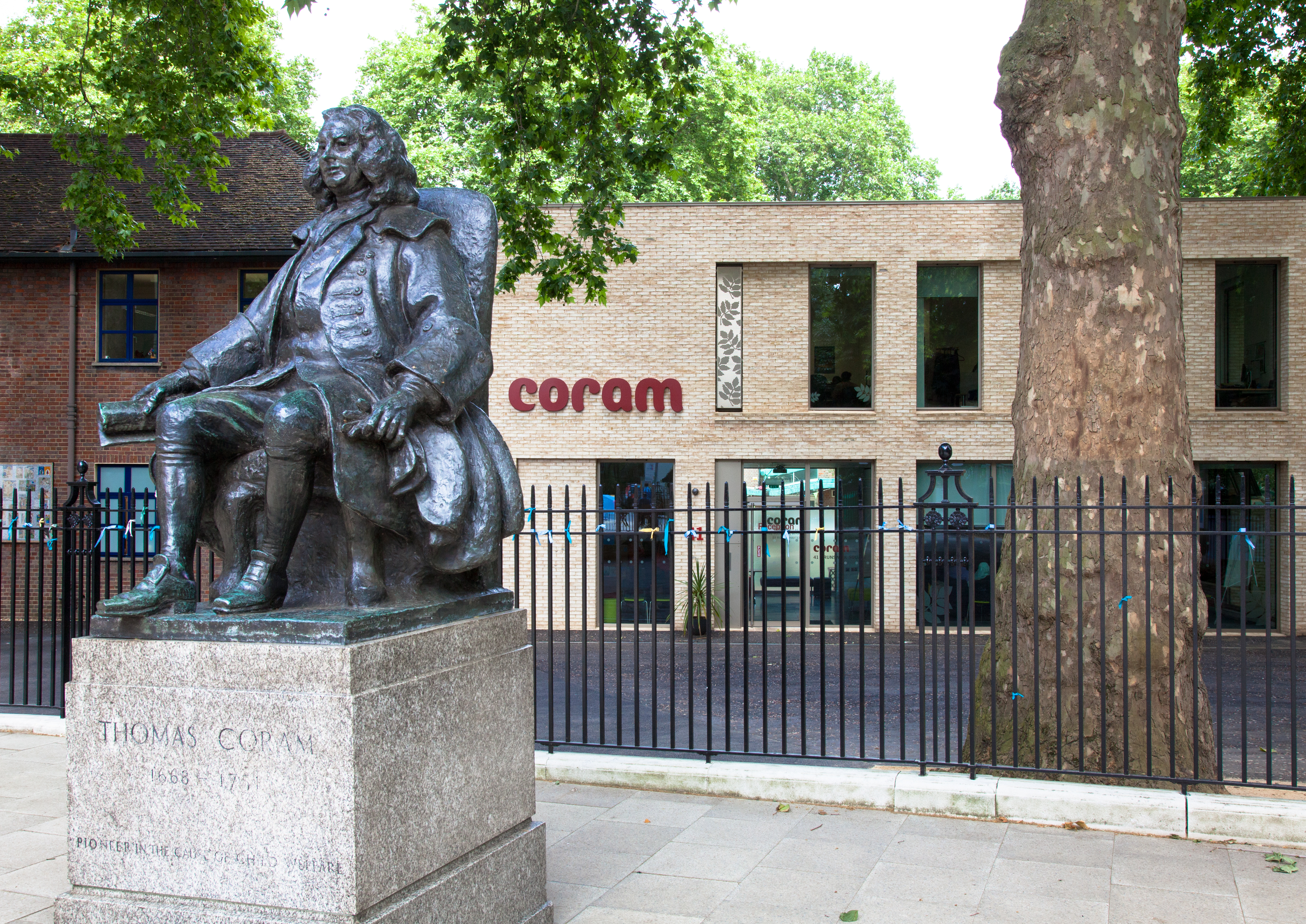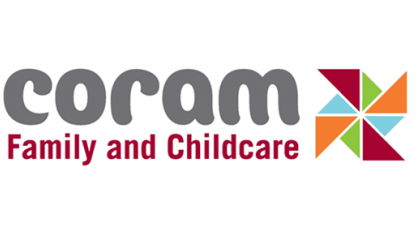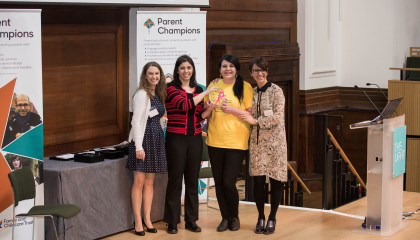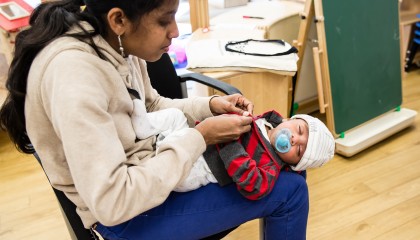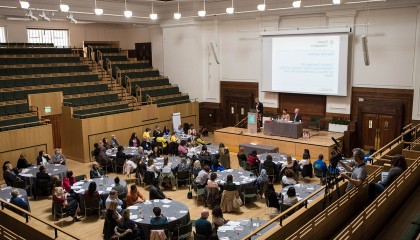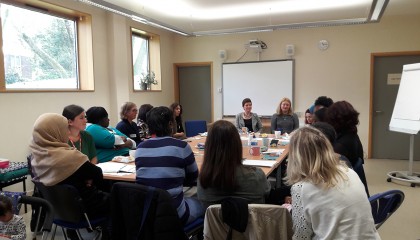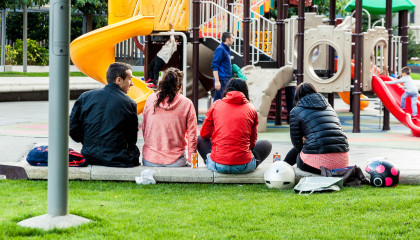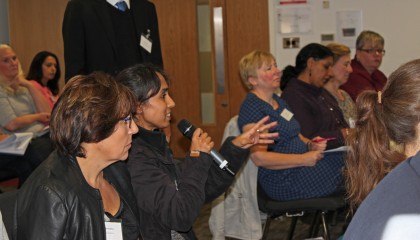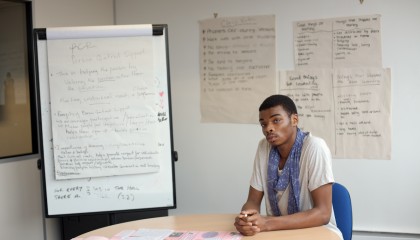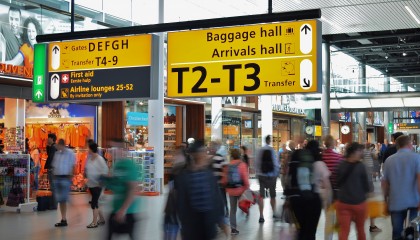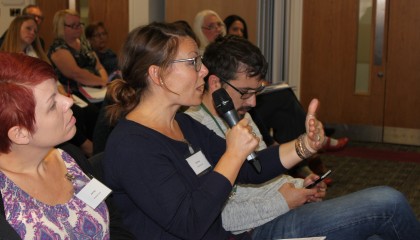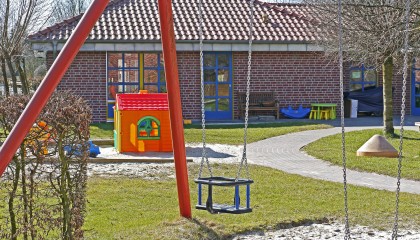You are here: On the Outside: Enabling parents from migrant backgrounds to access childcare provisions could help address existing inequalities
Ilona Pinter, Doctoral Student at Centre for Analysis of Social Exclusion (CASE), LSE
Many families struggle to meet childcare costs and more support is needed. This is particularly true for families from a migrant background who live and work in communities across the country but are not eligible for much of the available childcare support. As government implements its childcare expansion programme, it needs to make sure that all working families can access much needed childcare support so that they are able to work and to help to address existing inequalities.
Childcare reforms
The Chancellor’s recent Budget announcements to expand the provision of childcare for families was a welcome development. Amid a biting cost of living crisis, unaffordable childcare is a huge issue for families across the country including those from migrant backgrounds many of whom are locked out of existing provisions due to immigration restrictions. This is because migrant families in the UK are generally ineligible for government childcare subsidies and most social security benefits. The so-called ‘no recourse to public funds’ (NRPF) restrictions act as a ‘blanket ban’ on most mainstream benefits like Child Benefit or Universal Credit which support low-income families including with childcare costs. But these restrictions extend to childcare and early years provisions which are not named ‘public funds’.
Recent reforms show that change for families with NRPF is possible. In 2022, the government extended the provision of Free School Meals (FSMs) and the disadvantaged two-year old offer of childcare for 15 hours per week to families on low income who are also restricted by NRPF conditions. These changes will make a material difference not only to children and parents directly benefiting from the provisions, but also in the case of FSMs, to schools that receive additional pupil premium. More children in NRPF families may now also be able to benefit from the Holiday Activities and Food Programme (HAF).
Childcare costs and increasing working hours
The current reforms present an opportunity to do more. Families with NRPF are currently excluded from the support targeted to working families. As Coram’s Childcare Survey 2023 highlights, a full time childcare place for a child under 2 cost £14,000 per year. Without any state support and limited access to family networks, it is simply unaffordable for some migrant parents to work, especially for women and those with young children. Analysis has shown that while working-age migrant men tend to have higher employment rates than UK-born men (83% vs 78% in 2020), there is a significant employment gap for women particularly for non-EU born women whose employment rates were lower (63%) than both migrant men and UK-born women (72% in 2020). Childcare access and affordability are among other factors that shape the economic activity of migrants in the UK, though they are under-researched. But available analysis does suggest that costs are a key reason for why migrant parents do not use childcare services, more so than for UK-born parents. OECD research highlights similar evidence about the costs of childcare and implications for foreign-born women’s labour market integration in the EU.
Parents’ NRPF status excludes families from various forms of childcare support targeted to working families including single-parent families. As a result of this exclusion, the cost of childcare means that some parents simply cannot afford to work or work more hours.
Tax-free childcare example
One example of this is Tax-Free Childcare (TFC), which enables working families to get up to £2,000 a year for each child to help with the costs of childcare for primary-school-aged children. This goes up to £4,000 a year if the child has a disability and is under 17. Tax-Free Childcare is not listed as a ‘public fund’ for immigration purposes like other benefits, but the government’s regulations specify that persons who are ‘subject to immigration control’ are to be treated as not being in the UK for the purposes of this support. This applies to most migrant families who are resident in the UK, including long-term migrant families who have limited leave to remain or are on a visa and therefore have the right to work and do pay taxes, but are ineligible for this support.
30 hours of extended childcare
While all children including those in NRPF families can access the universal provision of 15 hours of childcare for 3-4-year-olds, NRPF families are barred from accessing the 30 hours of extended childcare aimed at working parents intended to support parents to increase their hours. The government’s evaluation of the 30 hours scheme showed that this support was particularly beneficial for mothers, almost a third of whom reported that both childcare use and their work were greater because of the extended hours. Many migrant families who are subject to immigration control and are affected by NPRF restrictions will be working and paying taxes both directly and indirectly into our collective coffers. Yet they will be unable to access this provision to get into work or increase their working hours.
The provisions set out in the Chancellor’s budget last month to expand the 30 hours of childcare for ‘every child over the age of 9 months with working parents by September 2025’ will match the existing 3-4-year-old 30 hours offer in terms of eligibility, meaning that unless action is taken, migrant working families will miss out.
Universal Credit provisions
This support could be a game changer for migrant families, who are not eligible for any other financial support to help with childcare costs. British and settled parents are likely to be able to access further support through Tax Free Childcare or Universal Credit. Universal Credit covers up to 85% of childcare costs in order to make sure work pays, even for the lowest earners.
But this support is unavailable to children in migrant families restricted by NRPF conditions who cannot access UC regardless of low income. Furthermore, families in these circumstances have no access to other vital support for children and parents like Child Benefit, Housing Benefit, Disability Living Allowance and other public funds.
Implications of exclusion from childcare provisions
Government data shows that the proportion of individuals migrating to the UK who are getting ‘settlement’ or Indefinite Leave to Remain has fallen in recent years. This was an explicit aim of government under David Cameron; to ‘break the link between migration and settlement’. To achieve this, the government implemented various measures such as increasing the number of years that individuals and families had to be in the UK before they could apply for settlement, which would mean they were no longer restricted by NRPF and could access benefits and childcare provisions. Huge increases in application processing fees have also made settlement inaccessible, especially for families on low income. One consequence of this has been that more individuals and households are living in the UK on a ‘temporary’ form of leave to remain or visa for longer all the while subject to NRPF restrictions.
Recent analysis by the Centre for Analysis of Social Exclusion has shown that in 2019/20 children with foreign-born parents were almost twice as likely to be in relative poverty and over three times as likely to be in severe poverty than their peers, even when parents had been in the UK for over 10 years.
Exclusion from social security provisions, particularly in-work and childcare support, not only affects family income but also plays a role in how easily parents, particularly women, can increase their working hours – a challenge which is highlighted through qualitative research. For example, in research published by The Children’s Society in 2020, we interviewed parents affected by NRPF restrictions and several of them spoke about the challenges they faced accessing childcare. Joy - a domiciliary care worker and single mum whose child has autism – told us about how challenging it was for her when she had no recourse to public funds and worked on zero-hours contracts. As she was on her own and needed to take care of her son, she could only work while he was at school. Having no additional childcare support and being a single parent meant she needed a flexible work contract to take time out to care for her son. But this also meant that she had little control over her income because her shifts varied leaving her and her son with very limited income at times, for example when her manager reduced her hours or when a client passed away. She told us that for a period she was only working three hours a week earning only £80 in one month, without the benefit of Child Benefit, Housing Benefit or other support. While she had no recourse to public funds, she was also ineligible for additional support such as Disability Living Allowance or Tax Credits, which other families in her situation might have been able to access.
Families with an irregular or unresolved immigration status
Access to affordable and safe childcare is an even greater problem for parents with an irregular immigration status or whose status has not yet been resolved. Given the exposure to poverty, social exclusion and labour exploitation that families in these circumstances already face, access to regulated childcare is also important from a child welfare and safeguarding perspective. One such example was tragically highlighted by the serious case review of Baby T whose mother accessed unregulated childcare from an acquaintance which ultimately resulted in her child’s death.
Through my research with asylum-seeking families who are similarly restricted from accessing public funds, I have come across a number of parents who have been granted permission to work. However, the high cost of childcare and lack of other support for families including in-work benefits and Child Benefit, is unlikely to help many parents take up work or work more hours.
Opportunities for inclusion
Including families with NRPF within Government’s expanded childcare provisions for working families would unlock the labour market for parents as well as support children’s welfare and development. Until children with migrant parents can access the same support as their peers, and parents can access affordable childcare, these structural inequalities will persist and parents will be frozen out of the workplace.

More from our blog
Sign up to our newsletter
Get the latest news, research and resources from Coram Family and Childcare


